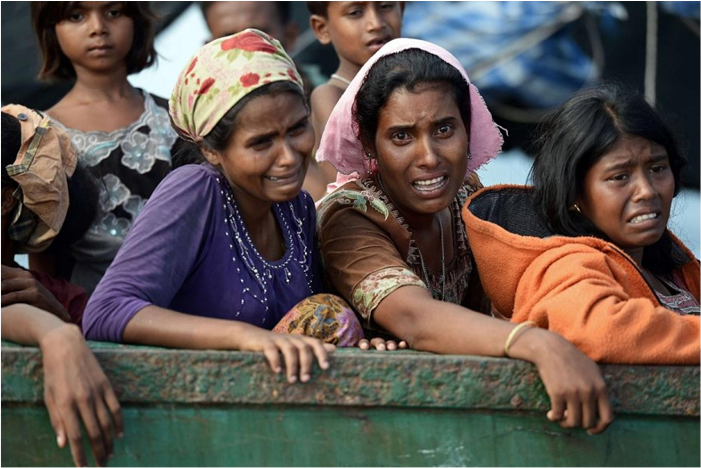8 Questions (and Answers) About the Rohingya Refugee ‘Situation’
May 18, 2015 • Alexis Betia

May 18, 2015 • Alexis Betia
For those of you who aren’t aware of the massive humanitarian crisis that Southeast Asia is facing at the moment, here are 8 things you need to know about the “boat people.”
The Rohingya are a Muslim ethnic minority that has faced years of discrimination, oppression and persecution in the predominantly Buddhist Myanmar, formerly known as Burma. Their ancestors crossed over from Rakhine state, researchers say, around the 19th century.
In 2014, the Burmese government released a plan that would offer the Rohingya citizenship if they declared their ethnicity as Bengali. As they are not from Bangladesh and are technically refugees who have crossed international borders in order to flee conflict and persecution, this is unacceptable to the Rohingya. This “plan” also effectively strips them of all their rights to vote, own land, etc.
Due to the influx of undocumented and irregular maritime activity in the last few months, there has been a crackdown in human trafficking efforts, resulting in the traffickers abandoning scores of people to die and starve in the mountains of Thailand in what were meant to be half-way camps between Burma and their new homes. This also means that boatloads of thousands of innocent men, women, children and the elderly have been left in what are basically floating coffins with at the moment zero resources, off the coast of these three countries.
Despite global maritime law that ships should rescue anyone in distress at sea and that coastal states are also obliged to provide aid and assistance, these countries are allegedly worried about the sudden influx of thousands of refugees. While a few boats have been allowed to land and their passengers given temporary refuge in Malaysia, those who neared Thailand have simply been given little food and water and sent back to open water. Others are still out at sea, facing certain and imminent death due to lack of food and water.
A refugee camp has been set up Philippine Refugee Processing Center in Morong, Bataan.
In a highly loaded situation, some humanitarian efforts have resorted to boarding private ships and attempting to find these boats to deliver food and water to them, risking the ire of their country’s navy.
At this point, rage and revolution will bring us nothing if our governments don’t decide to let these ships dock.
Alexis is a freelance copy-creative for screen and events. When she isn’t busy with work and motherhood, you can find her on the internet beefing up her reservoir of useless information, or scream-crying about the latest K-pop comeback.
Input your search keywords and press Enter.
